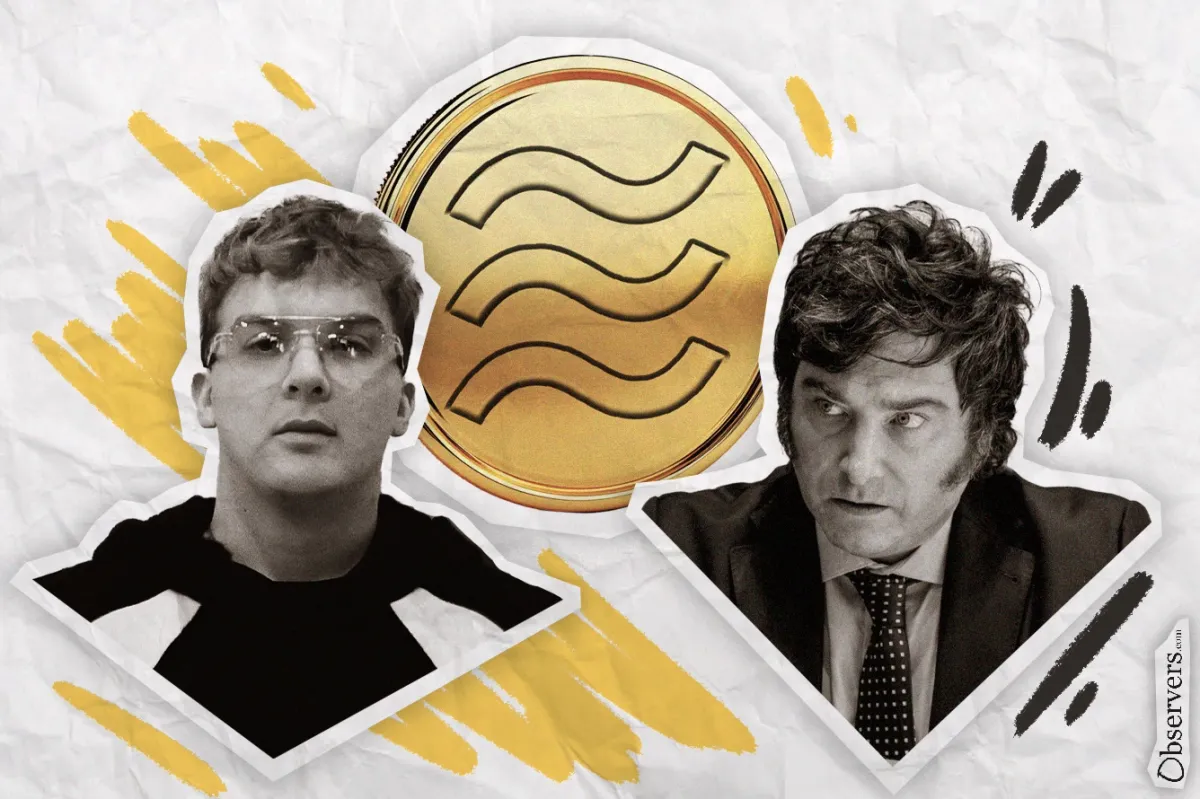
Hayden Mark Davis, the CEO of Kelsier Ventures, has emerged as a central figure in the recent $LIBRA meme coin scandal. Davis, a 28-year-old entrepreneur, allegedly amassed nearly $100 million from the token's launch, which was promoted by Argentine President Javier Milei.
Critics have labeled the incident the biggest "rug pull" in history.

Davis has faced significant backlash and legal scrutiny over his role in the token crash. In a public statement, he denied any personal gain, claiming that the extracted funds were intended for reinvestment into the project. He also expressed uncertainty about the appropriate course of action regarding the substantial funds under his control, seeking guidance on how to proceed.
In an interview with YouTuber and crypto sleuth Coffeezilla, Davis further suggested that President Milei’s withdrawal of support for the LIBRA token was the key factor in the LIBRA project failure.
[...] have Milei do the second round of videos and then [we] inject all the capital back in, or at least the vast majority, and create like a mega Trump launch basically,” explained Davis.
Beyond the $LIBRA project, Davis has been linked to other controversial meme coin launches. He admitted involvement in the $MELANIA token, associated with former U.S. First Lady Melania Trump, which experienced a significant surge before crashing. Davis described the situation as a "plan gone miserably wrong," emphasizing that the team did not profit from the venture. These incidents have drawn attention to the practices of Kelsier Ventures, with allegations of insider trading and market manipulation in multiple meme coin projects.
On February 17, 2025, DefiTuna founder Moty Povolotski publicly disclosed that the project had severed ties with Kelsier Ventures, which had contributed $30,000 to the project in January.
Impeachment Calls Mount for Argentine President Over Crypto Scandal
Meanwhile, opposition politicians in Argentina are demanding the impeachment of President Javier Milei following his endorsement of the $LIBRA token. Milei promoted $LIBRA on social media, calling it a boost for Argentina's economy. The coin quickly soared before erasing $4.4 billion in value, causing widespread losses.
Complicating matters further, allegations have surfaced regarding Milei's sister, Karina, who is said to have arranged crucial meetings between the president and crypto developers. According to text messages seen by CoinDesk from the coin's founder Hayden Davis, Karina was paid to influence these meetings. He bragged in a text message in mid-December:
"I control that n****... I send $$ to his sister and he signs whatever I say and does what I want."
Davis has denied these allegations, asserting that he has no recollection of sending such messages and labeling the reports as "politically motivated."
The scandal has ignited widespread political backlash, with allegations of fraud and criminal association being investigated by the federal prosecutor's office. Milei, who retracted his promotional post, claimed ignorance about the project's details. "I was not aware of the intricate dynamics of this venture," he said in a recent public statement.
Nonetheless, legal actions and a political firestorm have ensued, with figures like former president Cristina Fernández de Kirchner and opposition lawmaker Leandro Santoro accusing Milei of misusing his presidential influence for personal gain.
"This goes beyond mere nepotism; it's a profound betrayal of public trust," said an opposition lawmaker, echoing sentiments that Milei abused his presidential powers.
This controversy not only threatens Milei's political future but also underscores ongoing concerns about the integration of cryptocurrency in Argentina's volatile economy.
Enough is Enough
The $LIBRA incident has highlighted the precarious nature of meme coins. Their unregulated status poses a serious threat to societal welfare, as these speculative assets often lead unsuspecting investors to financial ruin.
Unlike traditional financial markets, where regulations and consumer protections provide safeguards, meme coins thrive in a "Wild West" environment, where hype, celebrity endorsements, and viral trends dictate value rather than fundamental economic principles.
This lack of oversight makes it easy for bad actors to orchestrate pump-and-dump schemes, where early insiders profit while retail investors suffer devastating losses.
Notable figures in the cryptocurrency community have stepped forward to assist affected investors. Changpeng Zhao (CZ), the founder of Binance, exemplified this by donating 150 BNB (approximately $100,000) to support victims of the $LIBRA scam. His initiative was inspired by a university student who had already contributed $50,000 of his own funds to aid those impacted.
Interestingly, after publicizing his donation, CZ's wallet received additional contributions, which he pledged to redistribute to victims of meme-coins linked to his own X posts, such as the Test (TST) token and his dog-themed Broccoli coin.
The $TRUMP meme coin launch sent a dangerous signal that anything goes in the crypto space. We are likely to observe a countermeasure from regulatory authorities soon. Otherwise, without proper oversight and investor protection, the continued rise of meme coins could deepen financial inequalities and undermine economic security far beyond the cryptocurrency market.

